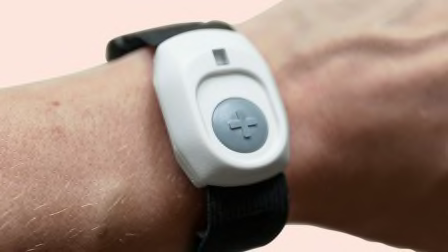Can You Trust Health Info You Read Online?
Reliable websites are out there. Here's how to find them.

Feeling off or notice a new pain? Chances are you may turn to “Dr. Google” and search for answers to your medical questions online. But there’s an overwhelming amount of health advice on the internet, and it can be hard to tell what’s credible.
“The potential for things to look legit but not be is really tremendous,” says Sarah Nosal, MD, an assistant professor of family medicine at Mount Sinai in New York. A few steps can help you find useful and accurate results.
Be a Savvier Searcher
First, know that Google is not always the best place to start a search. You’ll increase the odds of finding reliable information if you begin somewhere trustworthy, such as a government website (see "The Sites You Can Rely On," below).
When an Online Search Helps
Consulting the internet is often maligned, but it has its place: It could help you prepare questions for your doctor, for example, or better understand what to expect from an upcoming procedure, Nosal says. And studies suggest that people don’t necessarily make worse decisions as the result of a typical web search, Mehrotra says.
Finally, it’s okay to bring up your findings with your provider, according to Nosal. “Your doctor is expecting you looked at information in the world,” she says.
Be Wary Of . . .
Random users: People should be cautious about using medical information from social media and online forums, Mehrotra says. Comments in these places may sound authoritative even if the authors have no medical training or expertise.
Product sellers: You should also be skeptical of anything that appears to recommend a product that can treat your condition, Nosal says, including targeted ads that often appear after you’ve done a search. “I have had more than one patient have liver failure from supplements,” she says, which people often learn about online.
Counterintuitive advice: If you see anything that contradicts official guidance, like the idea that a usual treatment is unsafe, Nosal recommends talking to your doctor about it. “Let’s look together,” she says.
Answers generated by artificial intelligence (AI): Recent research shows that systems like ChatGPT, which are sometimes used to answer search queries, seem to be more accurate than symptom checkers, Mehrotra says. But they can also be wrong and sometimes even “hallucinate,” or generate false but scientific-sounding information.
The Sites You Can Rely On
Rather than starting with an internet search, try your own doctor’s online patient portal, Nosal says. These often include links to credible resources and serve as a way to ask your doctor less urgent questions.
The Medical Library Association also has a list of useful health websites, including government sites and those run by medical associations, which tend to be among the most credible. Whatever your question, there’s probably a site that can help. Here are a few about:
Symptoms and conditions: MedlinePlus.gov, NIH.gov, and NHSInform.scot.
Public health, including any questions about vaccines: CDC.gov.
Cancer treatments, risks, and symptoms: Cancer.gov (National Cancer Institute).
Heart health: Heart.org (American Heart Association).
Editor’s Note: This article also appeared in the October 2023 issue of Consumer Reports On Health.




